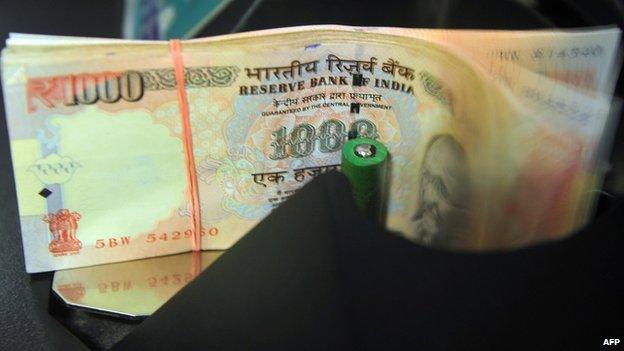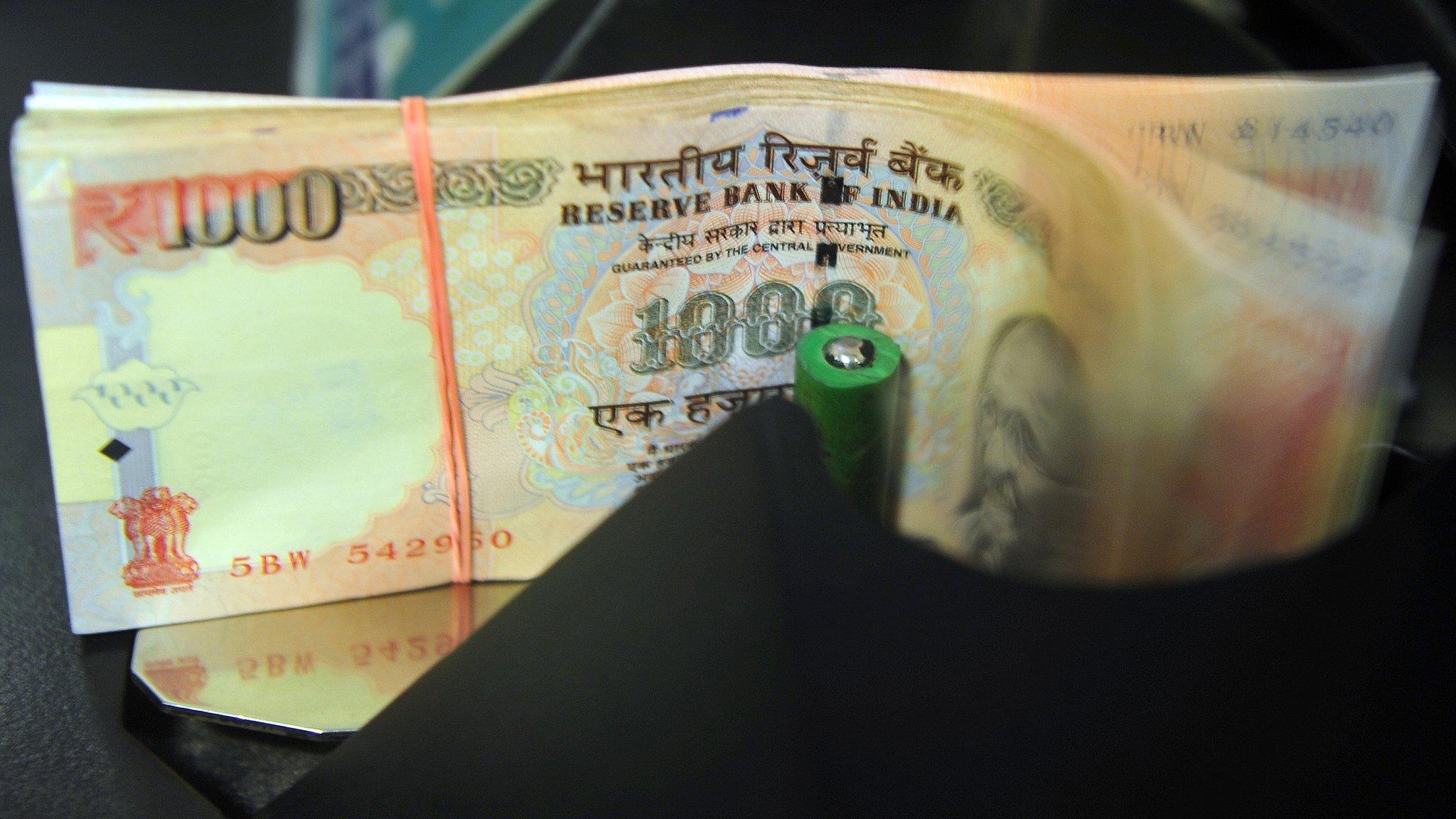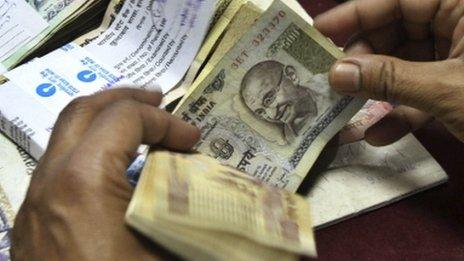HSBC leak: India to probe new 'black money' list
- Published

Undeclared cash is seen as a major hurdle to India's economic growth
India will investigate a new list containing names of Indians suspected to have parked untaxed wealth in a foreign bank, Finance Minister Arun Jaitley has said.
Secret documents leaked from HSBC's private bank in Switzerland have revealed that it helped thousands of customers to evade taxes.
The names of nearly 1,200 people from India feature in these papers.
It is estimated that these Indians held $4bn (£2.63bn) in their accounts.
India says illegal funds are often sent to tax havens, including Mauritius, Switzerland, Liechtenstein and the British Virgin Islands, and the new government has said "unearthing black money is an important issue" for them. Experts estimate that Indians hold $500bn (£297bn) in overseas tax havens.
In June, India set up a special task force to find "black money", in one of the first decisions taken by the new Prime Minister, Narendra Modi.
In October, the government gave a list of 627 names of Indians suspected of concealing wealth kept in HSBC from income tax authorities to the Supreme Court.
The top court forwarded the list to the special investigation team (SIT) which is inquiring into the issue of illegal funds.
On Monday, The Indian Express newspaper , externalrevealed the names of 1,195 Indians who held bank accounts with a total balance of $4bn in Switzerland with HSBC between 2006 and 2007. The list includes names of some politicians and powerful businessmen.
Mr Jaitley said on Monday that all names will be investigated, but he also cautioned that some accounts might be legitimate.
"Some new names have been revealed whose veracity would be checked by authorities," he said.
The Indian names are part of a global list of account holders in HSBC's Swiss private banking arm and their balances for the year 2006-07. They include people from over 200 countries with a total balance of more than $100bn.
HSBC has admitted that some individuals took advantage of the bank's secrecy clause to hold undeclared accounts. But it said it has now "fundamentally changed".
The documents, stolen in 2007 by a computer expert working for HSBC in Geneva, contain details of more than 100,000 clients from around the world.
Offshore accounts are not illegal, but many people use them to hide cash from the tax authorities. And while tax avoidance is perfectly legal, deliberately hiding money to evade tax is not.
- Published28 October 2014
- Published23 January 2014

- Published21 May 2012

- Published13 February 2012